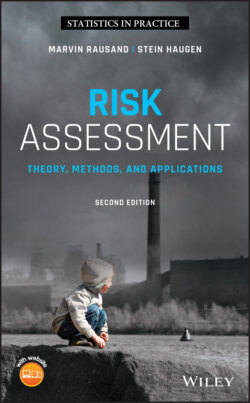Читать книгу Risk Assessment - Marvin Rausand - Страница 230
Definition 4.12 (Emergent property)
ОглавлениеA property of a system of elements that cannot be derived from the properties of the individual elements.
An emergent property is a property of the system as a whole rather than a property that can be deduced from the properties of the system components. This applies even if we had total knowledge about the properties of any one of the system components. Emergent properties can only be observed and measured when the components have been integrated into a system. A system with emergent properties is nondeterministic and does not always produce the same outputs when presented with the same inputs. A frequently used example of emergent property is salt (sodium chloride). Both sodium (Na) and chlorine (Cl) are poisonous when taken separately, but when compounded into salt (NaCl) it is part of our daily diet. It is not at all possible to deduce the properties of salt from the properties of sodium and chlorine.
Emergent properties occur within many categories of systems. In chemical systems, for example, we often see forces that are greater than the sum of the forces of their constituent parts. Many sociotechnical systems have emergent properties and are, therefore, not possible to analyze adequately.
